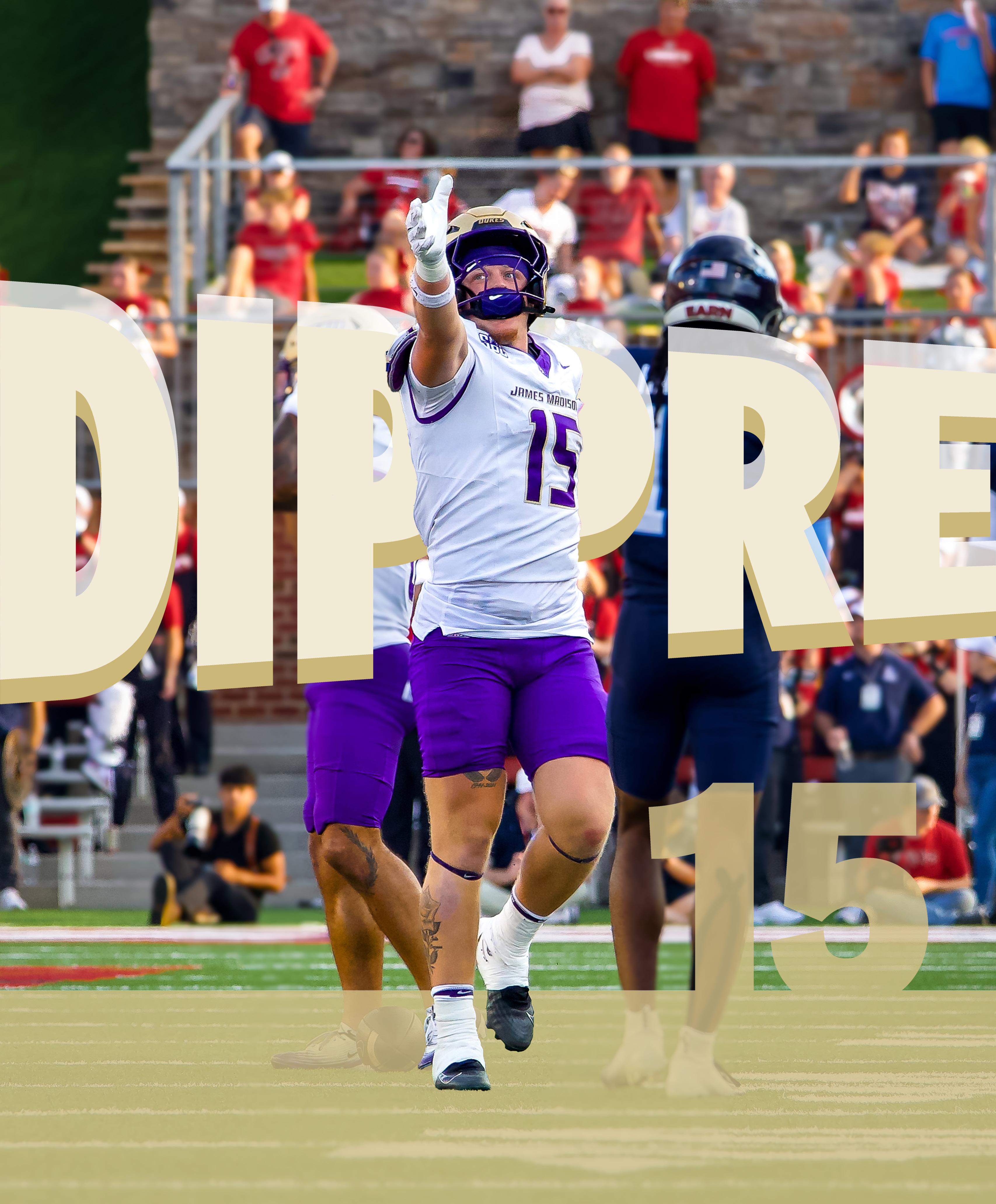

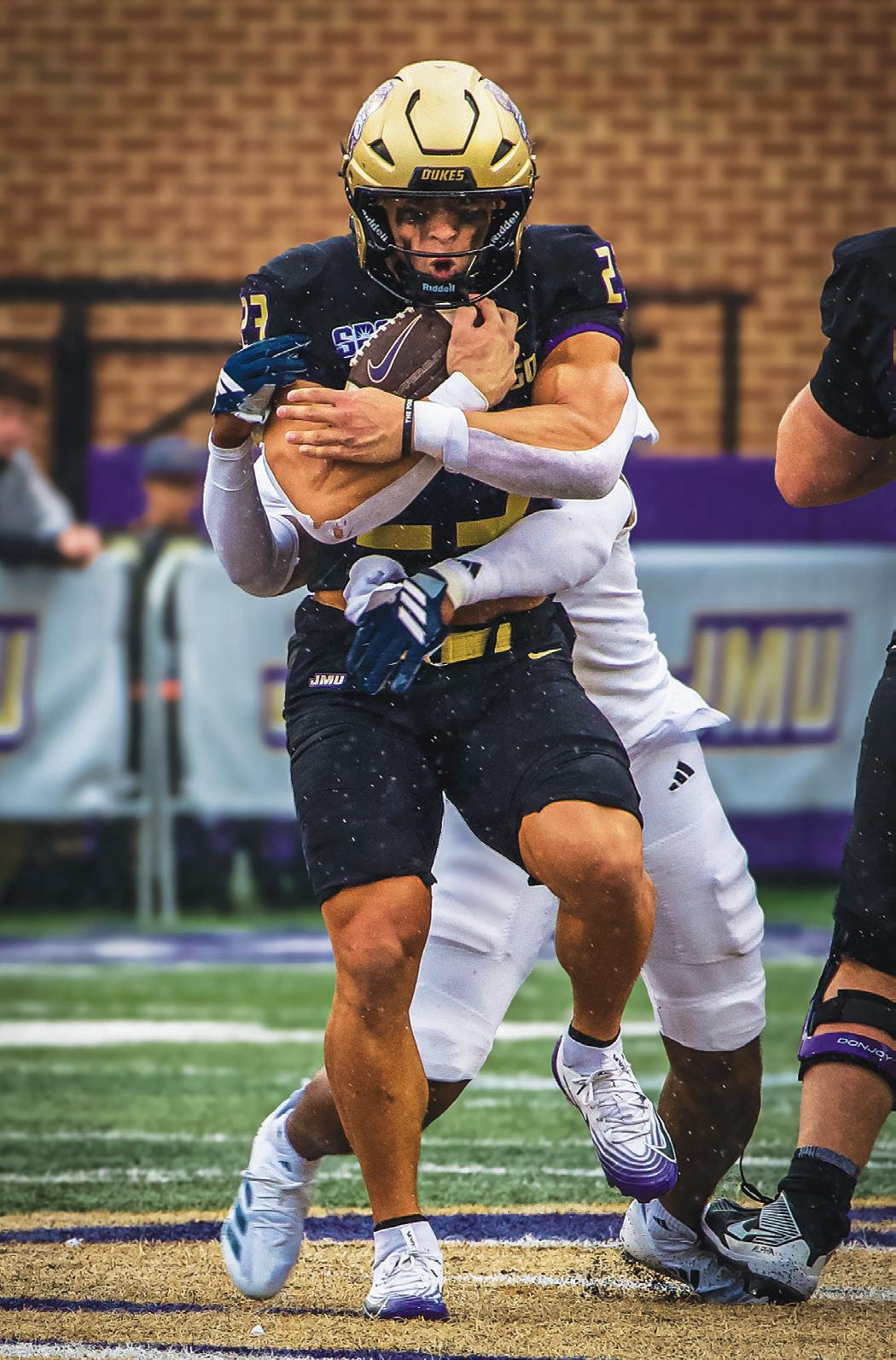
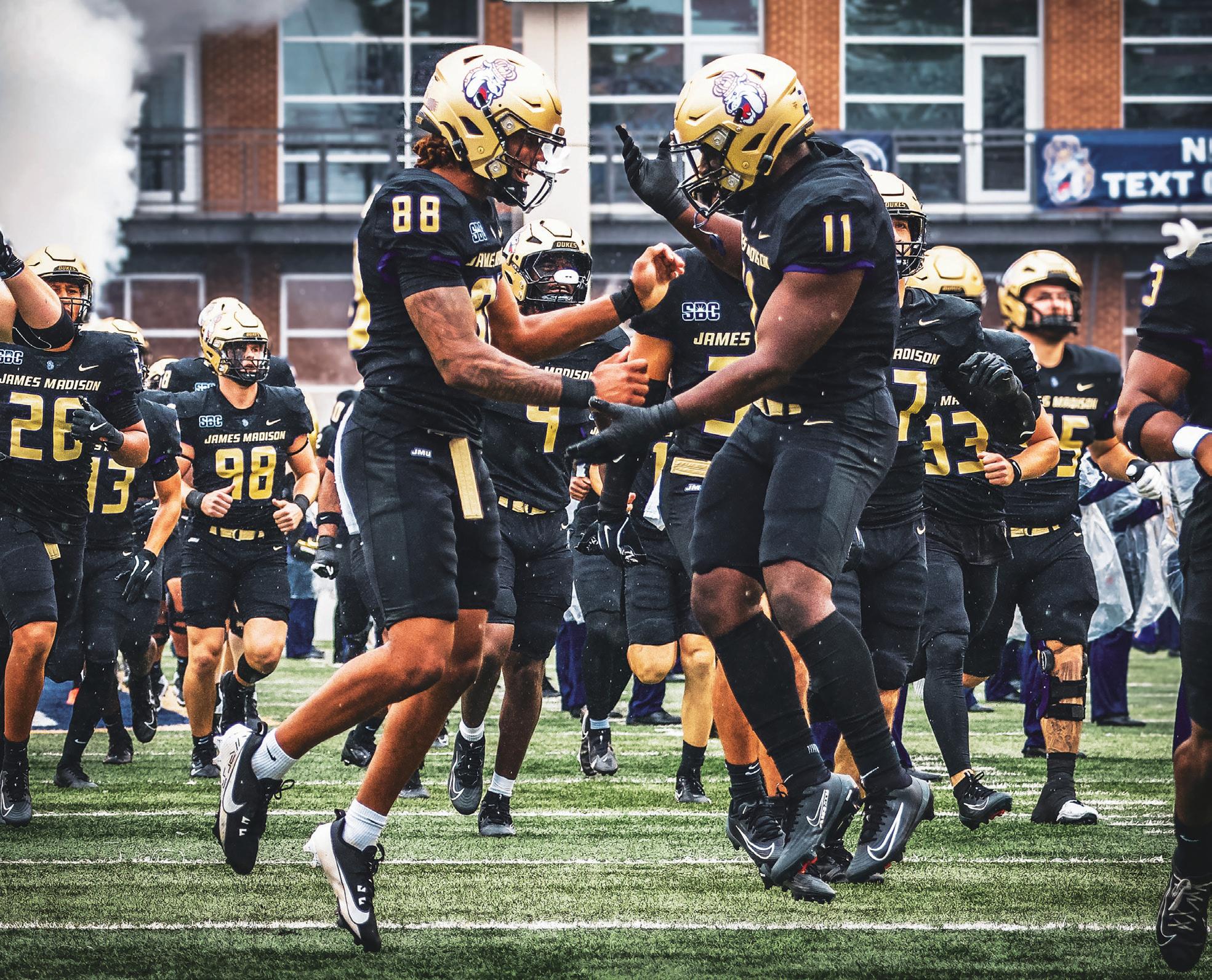





EDITORS Emma Notarnicola & Landon Shackelford EMAIL











EDITORS Emma Notarnicola & Landon Shackelford EMAIL

By SIERRA STOCKMAN contrubuting writer
The Harrisonburg Police Department (HPD) announced on Sept. 19 a new co-responder program, which also includes the hiring of a mental health clinician, Raz Ahmed, according to a HPD press release.
HPD’s co-response program will provide those in crisis with a responder specifically trained for behavioral and mental health calls, providing more resources to the person in crisis.
This program comes at a good time, HPD outreach and communications specialist Juliana McGrath said. HPD recently received a new grant to improve the program, and McGrath said HPD decided to put it toward improving HPD mental health response, especially with an increasing number of behavioral calls.
“We figured it was a really good way to be able to better help our community and connect them to the resources that they need, and it also allows officers to respond to more law enforcement calls instead of behavioral health calls,” McGrath said.
HPD interim chief Rod Pollard said in an announcement that Ahmed was recently hired to fill this role and is in the
process of finishing training. In this position, Ahmed will respond to behavioral and mental health calls with an officer and assess the situation to see what the person in distress might need, McGrath said.
Before this program, HPD relied on its Mental Illness Crisis Team (MICT) — officers trained in crisis intervention — to respond to mental health calls, McGrath said. However, due to the limited number of MICT officers, one on each squad, the HPD couldn’t guarantee an MICT could access every call, McGrath said.
“By having Ahmed with us, it allows the person who may be in crisis to receive the best resources possible for them,” McGrath said.
HPD has been working closely with the JMU Police Department and its co-responder program to observe and potentially learn from its experience, McGrath said.
JMU Police Department (PD) mental health co-responder Jackie Jenkins Showalter said she has been working with HPD since the start of the new program.
“I have spent a considerable amount of time building relationships with HPD so that we can ensure appropriate support and access for all students regardless of their residence, recognizing that a large population of our
students reside off-campus and within city limits,” Showalter said.
McGrath added that this program is a convenient option for students living off campus.
“Off-campus students are just as much part of the Harrisonburg community as our full-time residents, so allowing us to respond better to these calls and provide more resources on these calls will help the community as a whole, including our students,” McGrath said.
Showalter said that HPD’s new co-responder program raises the chance that an individual who needs help, will receive compassion and safety rather than punishment.
“We hope that we are able to provide better service to everyone in general, not just someone who may be experiencing a crisis, but their family, their friends and people that care about them,” McGrath said. “We just hope that we are able to provide the best resources possible for them to get into a better place.”
CONTACT Sierra Stockman at stockmsg@dukes.jmu.edu For more coverage of JMU and Harrisonburg news, follow the news desk on X @TheBreezeJMU and on Instagram @BreezeJMU.
By SIMONE DYSTANT contributing writer
Participation in sorority and fraternity recruitment reached record levels this school year, raising questions about whether this has led to more competition for prospective new members (PNMs).
The overcrowding
Sophie Tiger, a freshman Alpha Sigma Tau sister, said the increase in PNMs was due to the large freshman class this year.
There was a 7% increase in undergraduate applications for the 2025-26 school year, according to JMU news, setting a new record for JMU enrollment.
“22,000 students on campus can be intimidating, and students want to find a way to make it smaller,” Associate Director of Fraternity and Sorority Life Jim Gulbranson said.
Gulbranson said the reason incoming students take an interest in fraternity and sorority life is that they can quickly find belonging in such a big school.
“I wanted to rush a sorority for the friendships and to make meaningful connections in each house,” said Madilyn
Klein, a freshman who recently joined Alpha Delta Pi.
Klein said she thought one reason for the rapid increase in participants in Greek Life was its popularity on social media.
“I’ve seen recruitment videos for sororities all over my Instagram feed,” said Siana Leo, a freshman who isn’t involved in a sorority.
Tiger said she thinks students want to be part of that community because it’s popular on social media.
Twenty percent of JMU students are a part of a sorority or a fraternity, according to Fraternity and Sorority Life.
“We are still calculating the numbers for the fraternity side, but sorority numbers this school year are definitely up,” Gulbranson said.
The rush process requires PNMs to express interest in a sorority throughout a series of rounds where both PNMs and existing Greek organizations rank each other, Gulbranson said.
However, Gulbranson said the rush process wasn’t affected by the number of people who joined.
“The large number of PNMs doesn’t necessarily mean that more people get in or fewer people get in; it depends on a lot of different factors,” Gulbranson said.
“If that organization likes that person, it’s a match,” she said.
Despite this, students Klein and Tiger said they think the large amount of interest in Greek Life affected the rush process because some girls didn’t get the house they wanted, partly due to overcrowding.
“A lot of my friends had trouble getting the bid, their favorite organization on Greek row, that they wanted,” Klein said. It was a very large pool of PNMs and houses could only fit up to 28 women, according to Fraternity and Sorority Life.
“Everyone wants to be a part of the community, but the process is made to be competitive,” Gulbranson said.
Nonetheless, Gulbranson said recruitment is up compared to previous years.
“The large number of PNMs is a sign that JMU students want to get involved, this year more than ever,” Gulbranson said.
CONTACT Simone Dystant dystansl@dukes.jmu.edu.
For more coverage of JMU and Harrisonburg news, follow the news desk on X @TheBreezeJMU and on Instagram @ BreezeJMU.


By EMMA BROWN contributing writer
The Madison Center for Civic Engagement hosted its first monthly Better Conversations Over Dinner event — a program aimed to help students build relationships across political divides while having a meal — in Festival Ballroom A on Monday.
This event is a subset of the Better Conversations Together program, which is oriented toward teaching students the skills of civic discourse and how to have difficult conversations across political divides, Dillard said.
The Madison Center also strives to bridge divides through its ongoing partnership with Interfaith America, a national nonprofit, and the Madison Center is part of a cohort of other universities through Interfaith, Dillard said.
The event itself consisted of simultaneous conversations happening simultaneously at different tables.
“For a lot of students today, it’s really difficult to build connections ... especially in an era of polarization.”
Kara Dillard
Director, Madison Center for Civic Engagement
Each table was given a series of discussion cards to facilitate conversations, which consisted of “toast,” “appetizer,” “main dish” and “dessert” categories. The “toast” cards were icebreaker questions; the “appetizer” cards were questions to share different perspectives; the “main dish” cards were questions to share views on civic engagement; and the “dessert” cards were simple common-ground questions to conclude the conversation.
This will be a monthly event open to all students, Dillard said, adding that every meal will be free and provided by the Madison Center.
Next month’s event will take place on Monday, Oct. 27, at D-Hall and will be open to the public. There will also be a smaller group for engaging in events like this, which students will need to apply to join. This group will meet separately as a smaller cohort alongside JMU’s institutional leaders, Dillard said.
Attendee perspectives
Rudy Molina, the vice provost for student academic success, said he was pleased with his experience at the event.
He received the open invitation email and was interested to hear what students had to say, he said.
“I got a chance to meet seven new students and learn about their story,” Molina said, “I had the chance to share my take
on the world and my perspective. It was a safe environment and people were welcoming. All my ideas were welcome, and we had the chance to really talk about some tough things.” Senior Democracy Fellows Reagan Polarek and Jacob Wissot introduced the event, but also assisted in its production
see CONVERSATIONS, page 7
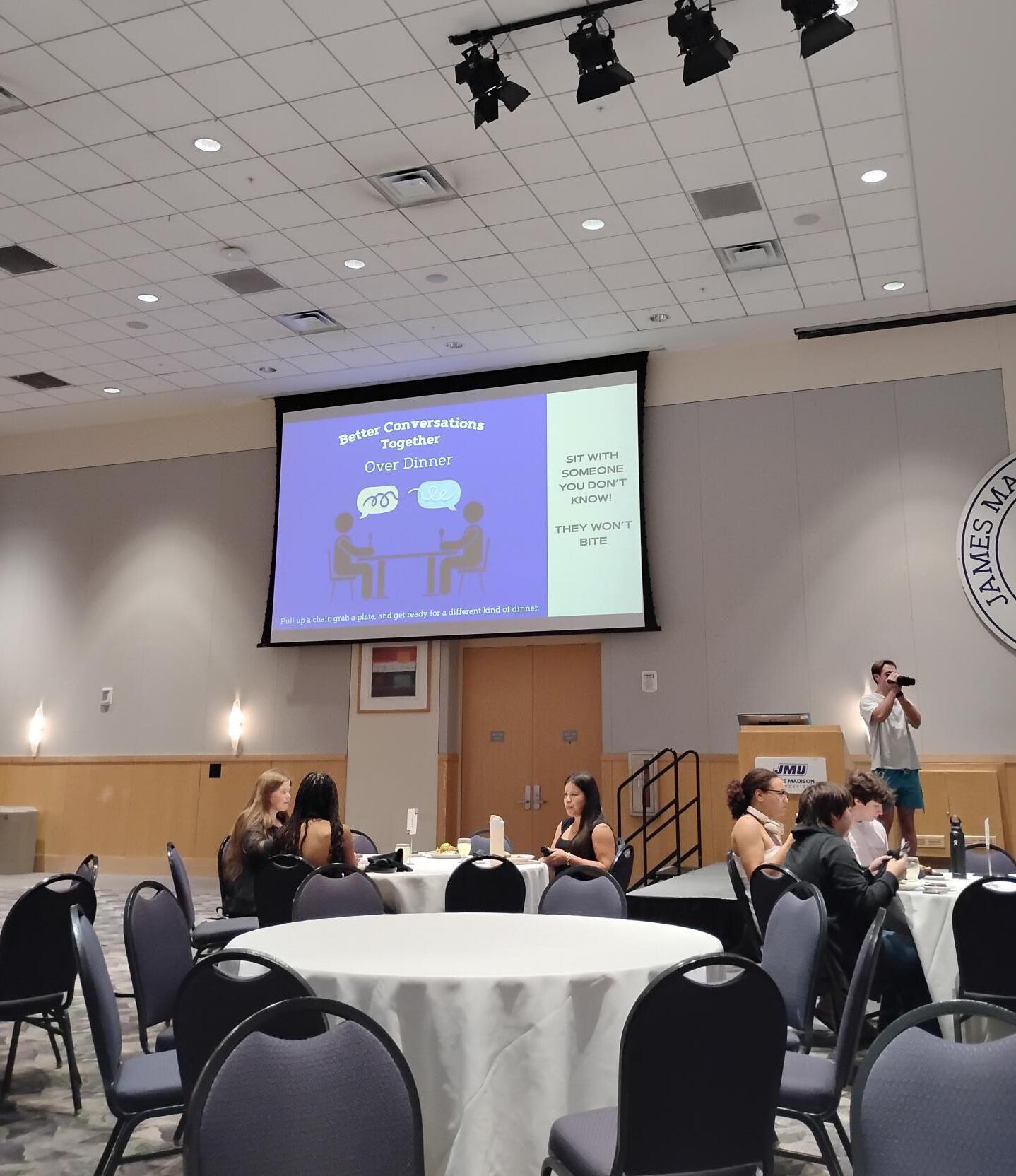


“Jacob and I really helped with making the script for the introduction and rallied the troops in order to actually get people there,” Polarek said.
As Democracy Fellows, Polarek and Wissot aid the Madison Center by promoting civic engagement, free speech and voter registration, she said. Democracy fellows facilitated conversations at each table, and although Polarek wasn’t a formal facilitator, she took part in various conversations.
“We came together with a shared goal of bridging divides, deepening relationships and engaging in meaningful dialogue,” Polarek said. “I think it’s all of our duty to facilitate conversation, whether you’re wearing a name tag or not, or whether you’re a Democracy Fellow or not.”
In the coming months, Polarek said she hopes to see more student and faculty attend the event.
“I think that the center did a great job putting it on, but we would love to see more people there,” Polarek said. “Advertising it more widely to student groups and leadership would be really great.”
Student attendees like sophomore Fernanda Morante said they enjoyed the event as well. Morante said she enjoyed making connections and discussing civic engagement at the event.
“I just like to hear different perspectives about things, especially the situation that our country is in right now,” Morante said. “I’m a public policy major, so civic engagement is really important to me.”
Senior and Student Body President Charlotte Bronaugh also attended the event, saying she greatly enjoyed the conversations, she said.
“I love a good conversation and didn’t want to miss it,” Bronaugh said. “I love the discussion cards, and having a targeted discussion point is really, really helpful for getting at the roots of all the important things we want to talk about.”
CONTACT Emma Brown at brown9eg@dukes.jmu. edu. For more coverage of JMU and Harrisonburg news, follow the news desk on X @TheBreezeJMU and on Instagram @BreezeJMU.

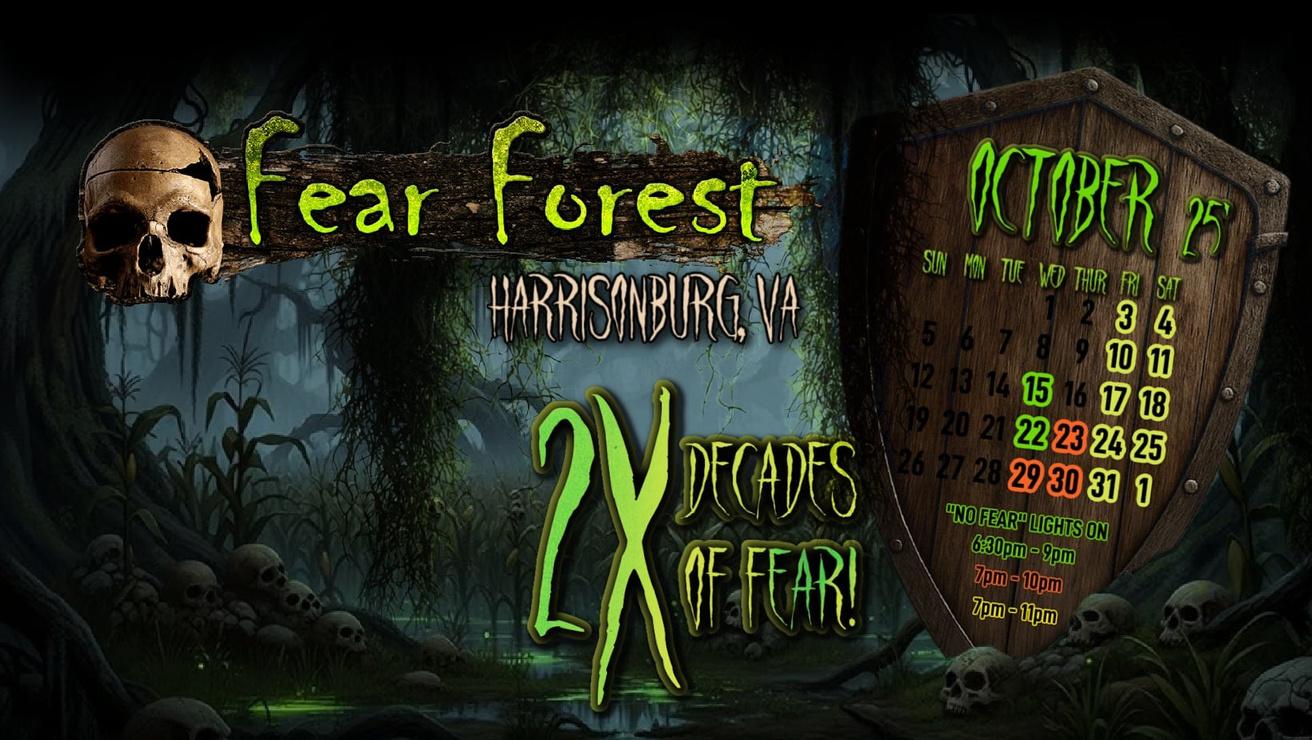

By EMMA NOTARNICOLA & SAM WRIGHT
The Breeze
The Student Government Association (SGA) unanimously appointed junior Sen. Malachi Drumgole as the sergeant-at-arms and welcomed its new senators during its Tuesday meeting.
Sergeant-at-arms nomination
Drumgole was unanimously nominated as sergeant-at-arms, the position that holds the door during Senate proceedings. Part of that means letting presenters and attendees in and out of the room when the Senate is in session, Drumgole said.
Additionally, this position will take over running the Senate if the speaker or parliamentarian is absent.
“You have to know the procedures, the rules, make sure you’re going through everything properly,” Drumgole said.
He added that the sergeant-at-arms needs to understand all processes of the Senate, including Robert’s Rules of Order, among other procedures.
Drumgole said he thinks he will be a good sergeant-at-arms because he has a desire to maintain his knowledge on procedures, and the support of senior Senate Parliamentarian Riley Gilbert, who wasn’t present at the meeting.
“I had a personal conversation with a parliamentarian, and she was letting me know ahead of time that she was going to nominate me … I would’ve said no, but I felt confident enough to step into that role,” Dumgole said.
Other senators who voted in Drumgole’s favor thought the same, such as junior Election Commissioner Regan Lovell, who said, “he definitely puts his best foot forward.”
Lovell said that during her experience with Drumgole, he has always worked hard and was enthusiastic.
“He really wants to improve our committee [Rules and Elections committee], not only internally but for the entire org,” Lovell said.
Drumgole said he will work hard to maintain his knowledge of Robert’s Rules of Order, but also be there as a resource for those throughout the organization.
“Not trying to be a door holder, just trying to make sure I’m there for everybody and answering questions as I need to be,” Drumgole said.
Upon his nomination, Drumgole said he was very grateful and excited to be nominated for the position.
“I stepped out and was like, OK, I guess we’ll just wait to see what happened, but I was very excited when I came back in with a round of applause,” Drumgole said.
Swearing in of the senators
After all of the official business had concluded, the Senate commenced a swearing-in of the senators during which all of the members of the 111th Senate received an official certification, SGA pin and shook hands with senior Student Body President Charlotte Bronaugh and senior Speaker Kieran Fensterwald.
One senator, sophomore Sara Ougnou, said she was “very excited to be leveling up,” adding that when she first joined SGA, she was a representative. Ougnou said she’s also excited for the next senate and the future with the new senators.
“I think there’s a lot of big changes happening with the new president and just the new year,” she said.
Similarly, freshman recently-appointed Sen. Evan Khanna said he was also excited for the new year and the future of the Senate.
“I was never an SGA in high school, so this is kind of like a nice fresh start for me. I can especially start leading initiatives,” he said. “I love all the events they’ve [SGA] been throwing. I love how I actually get a say in decisions. It is a lot of work, but to me it’s fun work.”
Bronaugh said the ceremony was “so fun,” and she appreciated being able to celebrate the new future of the SGA.
Bronaugh added that she’s “pretty excited” about the future of the Senate with the new senators, while also being proud of the work that has already been done this semester.
“Celebrating the things we’ve already done but also keep pushing forward and seeing what else is to come,” she said, “I think these new members will bring a really bright, fresh perspective into what new things we can do or how we can revamp some ideas and things we already do.”
CONTACT Emma Notarnicola at breezenews@gmail.com and Sam Wright at wrigh4sx@dukes.jmu.edu. For more coverage of JMU and Harrisonburg news, follow the news desk on X @TheBreezeJMU and on Instagram @BreezeJMU





Isabel Lewis & Charlie Bodenstein

By AUDREY FLETCHER contributing writer
Editor’s Note: This story contains mentions of sexual misconduct and suicide that may be triggering for some readers. If you or someone you know is struggling with their mental health in any way, please visit the American Psychological Association’s website or call 988. To reach the National Sexual Assault Hotline, you can call the toll-free number at (800)-656-4673.
Countless universities around the country have their own myths and superstitions, JMU has plenty of its own that students like to share during campus tours. Rumors spread through shared student experiences until they take on a life of their own, when they become accepted as fact.
From supernatural encounters to harbingers of bad luck or even true love, there are countless legends and supersititions that have shaped JMU’s campus.
The ‘Kissing Rock’
One of the most notable and longest-living myths told around JMU is the legend of the “Kissing Rock.” This large piece of limestone rock is an iconic landmark for students and alumni alike, and it’s found on the Quad in front of Alumnae Hall.
The stone was unearthed in the 1920s during Alumnae Hall’s construction, but it would’ve been too costly to remove it. So the university decided to leave the excavated portion of the rock sticking out of the ground, history professor and Senior Associate Vice Provost for Faculty Affairs and Curriculum Margaret Mulrooney said.
From the 1920s through the ’50s, Alumnae Hall was where women would sign in and out to go on dates, Mulrooney added. Men would bring their dates to and from the front of the building, but they weren’t permitted inside, so instead they would say their goodbyes outside near the rock — and the legend was born.
“[In the ’50s] the women here were still very much often encouraged to just get married and not have careers. So I think that’s tied with the whole dating thing,” Mulrooney said. “Some of these women were trying to get a ring, which suggests how the stories morph into, ‘if you kiss your beloved, you’ll get engaged.’”
Years later, the legend continues to be one of the most popular told to students.
“What I tell people during tours, the idea is that the person you kiss at the Kissing Rock will be the person you end up marrying and will be with forever and ever and always,” senior Student Ambassador Yazaira Luna said.
One superstition that was born from an actual tradition is the University Seal, which will allegedly bring you bad luck if stepped on. Located at the end of the Quad in front of the Forbes Center pedestrian tunnel, the seal is engraved with JMU’s Alma Mater:
Madison, James Madison will be forever true Our loyalty will always be to JMU While friends remain within our hearts And knowledge guides our way Madison, James Madison will lead us on To conquer each new day
The bronze seal was placed Nov. 25, 2015, by the Madison Society and JMU Alumni Office, who encouraged the start of a new tradition of walking around the seal rather than on it as a sign of respect for our Alma Mater and the pride of being a Duke, as stated on JMU’s website.
“I think it’s probably similar to other kinds of respect, like when you sing the Alma Mater or the national anthem, there are social mores that apply. But that begs the question, or what?” Mulrooney said.
Throughout the years, rumors have spread regarding the reasons students are meant to step around the seal. It has
developed into a fear of bad luck (especially during finals week), that if you step on the seal, you won’t graduate on time.
Another campus legend is the infamous tunnels hidden beneath the Quad, and while based on a kernel of truth, they have been transformed throughout the years into a supernatural mystery.
In reality, they aren’t even tunnels, but covered passageways that connect three buildings — Darcus Johnson Hall, Harrison Hall and Harper Allen-Lee Hall — on the Quad’s south side, containing steam pipes and electrical conduits giving them tunnel-like qualities. They were built in the 1920s and utilized primarily by the faculty/ janitorial staff.
“The young women who attended the institution were also allowed to have access to the passageways. It was a place I’ve seen lots of references to the women going down there to curl their hair and to do different kinds of ironing. I have always sort of suspected that they were down there, putting [their] curling irons on the hot pipes,” Mulrooney said.
However, sometime around the 1960s — when the campus was growing — administration decided to close off the “tunnels” to students. Shortly after they became restricted, the superstitions and ghost stories began to fly, such as stories of murder, suicide, abandoned babies and strange noises.
The most popular of the stories is set in the 1930s, when a female student is getting ready to go out to meet her boyfriend (varies based on version) in the tunnels. Her roommate warns her that it’s a bad idea and that it’s not safe to meet in the tunnels.
“The warning from the roommate is part of the story [because] the rules are very clear, and these are grounded in facts that the young women on this campus were not allowed to see young men without permission,” Mulrooney said.
When the female student got there, she was met by a man who sexually assaulted and killed her. As the legend goes, if you go inside the tunnels, there have been reports of hearing her heels clicking and smelling her perfume.
The final superstition is the ghost or supernatural presence in the Wilson Hall Cupola, which is said to be a female student who was having relations with a married professor but was rejected and — in response — hanged herself at the top of Wilson Hall.
“I see references occasionally to relationships between students and faculty here historically. I think [the story] probably has a kernel of truth, but whether it caused a suicide, who knows? It doesn’t matter whether it’s based in, I think it is based in the reality [that] you shouldn’t be having relationships with the faculty, let alone the married ones,” Mulrooney said.
Although there’s no record of any event ever taking place in the cupola, the story has been spread around campus for more than 50 years. On some nights, if you look closely, you can allegedly see the shadow of a woman hanging in the cupola’s window.
Whether these superstitions were based on true events and ideas, the bigger question may be: Why do we have these stories in the first place?
“I think these stories are fascinating because of the way they tell us something about the culture at the time. They’re what we call cautionary tales [and] are powerful in the way that they start circulating, and are connected to this place. But they serve a purpose, a bit like other stories and urban legends, serving as cautionary tales telling people what not to do or something bad will happen to you,” Mulrooney said.
CONTACT Audrey Fletcher at fletc2am@dukes.jmu.edu. For more on the culture, arts and lifestyle of the JMU and Harrisonburg communities, follow the culture desk on X @TheBreezeJMU and on Instagram @BreezeJMU.
By BELLA ARIST
The Breeze
Through tailgates, football games and strolling across campus, Dukes past and present came together to celebrate Family Weekend.
Held each fall, Family Weekend has been a tradition at JMU that students look forward to every year. Dukes from multiple generations connect and build a sense of community. The weekend tends to be filled with thousands of people and high energy.
The university hosts events like tours, activities, performances and the football game. Family Weekend spans over several days and not only strengthens the bonds of current Dukes, but also welcomes alumni to reconnect with the JMU community.
“I was a part of the Marching Royal Dukes (MRD) back in the ’70s when they first started and those were the best memories I had here at JMU,” Steve Fox said.
Fox (’74) graduated with a bachelor’s in business administration with a minor in marketing. He chose JMU because it was close to where he lived at the time, in the Valley.
The alumni shared how much “bigger and exciting” the marching band has gotten since he played the sousaphone for them. The band has grown immensely since starting in 1972.
“The campus has changed tremendously since I went to school here. What is now the Godwin parking lot was our football field without any stands. Seeing how much this university is expanding is really cool to watch,” Fox said.
If he could give advice to current students, it would be to “study hard and enjoy every second you are here.”
“I have been coming to JMU football longer than anyone else could because I have been here since the first game. My family and I have been season ticket holders since 1998 and we love the atmosphere on game day,” Fox said
Fox’s daughter, Joanna Klein, graduated in 2004 with her bachelor’s in communication sciences and disorders and in 2007 with a master’s in speech language pathology. She followed in her dad’s footsteps and played the sousaphone for the MRDs.
She has seen many buildings get torn down and new buildings appear since her time at JMU.
“Each year I come back to campus, I feel like it changes little by little. It is amazing seeing the university grow since
my time being here,” Klein said. “I would say my dad encouraged me to go here, but ultimately I always bled purple. This was the only school I applied early admission for because I knew it was the one.”
The biggest suggestion she has for students is to take advantage of the internships JMU provides.
“I feel like the opportunities I got after college wouldn’t have been possible without the internships I went through,” she said.
Read more online at breezejmu.org
CONTACT Bella Arist at aristai@dukes.jmu.edu. For more on the culture, arts and lifestyle of the JMU and Harrisonburg communities, follow the culture desk on X @TheBreezeJMU and on Instagram @BreezeJMU.


By BELLA ARIST
The Breeze
Next Friday, Wallows will bring a mix of nostalgic alt-rock and modern indie-pop to JMU’s campus. The Los Angelesbased band is set to take the stage at the Atlantic Union Bank Center (AUBC) on Oct. 3.
The event is organized by the University Program Board (UPB). Tickets are on sale now through JMU’s website for $43 each.
Wallows is an American indie rock trio composed of Dylan Minnette, Braeden Lemasters and Cole Preston. The group began independently releasing music in 2017 and quickly gained streams.
While the band officially debuted under the name Wallows in 2017, its three members had been playing music together for many years prior. Before settling on the name Wallows, the trio performed under various names like Feaver and The Narwhals, releasing early tracks such as “Bleeding Man” and “I’m Full.”
Wallows has built a large following in the rock scene, boasting over 8.2 million monthly listeners on Spotify. Its most-streamed song, “Are You Bored Yet?” with Clairo, has over 1 billion streams. Its music has been described as indie pop or alternative rock by fans. The band is known for putting on energetic live shows.
“It seemed as though everyone in the amphitheater was bopping along to the track and singing their hearts out,” music reviewer Georgia Riccobene wrote in a WUOG 90.5 FM article.
Riccobene attended Wallows’ concert in Atlanta last September. Minnette and Lemasters are known to throw guitar picks, drumsticks, and sometimes even setlists or water bottles into the crowd at the end of shows.
Wallows’ setlists typically include fan favorites such as “Are You Bored Yet?,” “Calling After Me” and “Remember When.”
“Needless to say, I left the show soaring on an indie rock high and a new crush on Dylan Minnette,” Riccobene wrote.
Over the years, the band has played at festivals like Coachella, Lollapalooza, and Reading and Leeds. Its tour history also includes stops in Europe, South America and Australia, which has built Wallows’ global audience.
In addition to its members’ music, the band has attracted attention for its other careers. Minnette is the lead singer in the band, but is also well known for his acting work in the Netflix series “13 Reasons Why.” While this has shed additional light on the band, its musical achievements stand independently.
Looking ahead, Wallows released its new EP “More” in March, which includes singles like “Your New Favorite Song” and “Coffin Change.” It’s also currently on the road with its “Model & More Tour.”
Even if people attending the concert aren’t familiar with the band’s work, the show is an opportunity to experience a renowned name in modern indie rock live on JMU’s campus.
CONTACT Bella Arist at aristai@dukes.jmu.edu. For more on the culture, arts and lifestyle of the JMU and Harrisonburg communities, follow the culture desk on X @TheBreezeJMU and on Instagram @BreezeJMU.
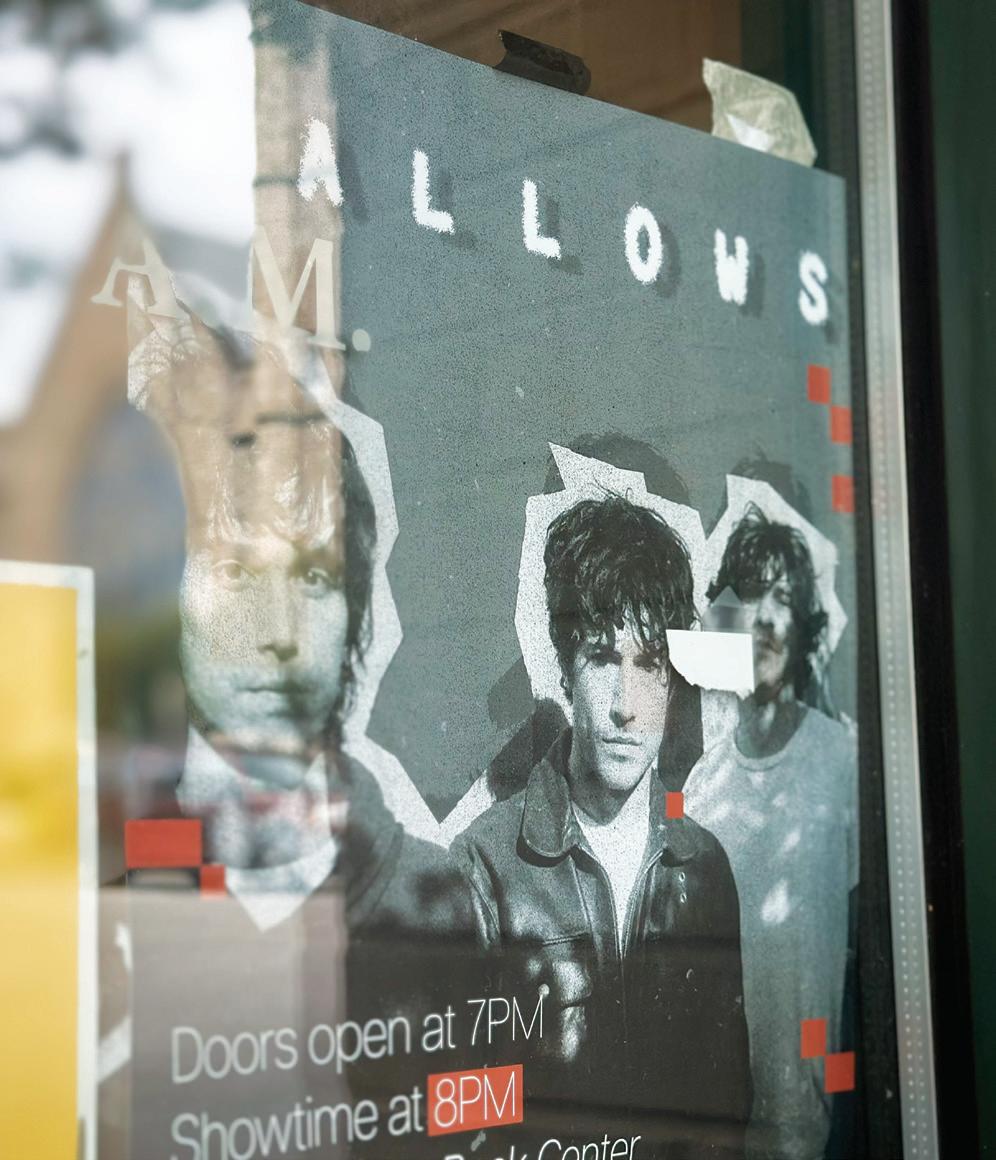
By ALYSSA MILLER contributing writer
Time is flying, and it’s hard to believe that midterms are approaching. College students have various methods for preparing for exams and completing assignments, but procrastination can get in the way.
It’s common for students to put off assignments because they don’t feel like doing them in the moment. But the truth is, you’ll most likely never be in the perfect mood or feel like doing the work you’ve been procrastinating.
The Cambridge dictionary definition of procrastination is: “The act of delaying something that must be done, often because it is unpleasant or boring.”
There are ways to prevent procrastination and get over the initial hump of getting started.
“I like to make sure my study space is super zen, so I always light a candle, have coffee with me and play nice ambient music,” senior political science major Abigail Hippeard said.
Studying in a comfortable environment can enhance your productivity by improving your focus and allowing you to work more efficiently.
Figuring out your preferred way to plan assignments can help with time management and reduce the temptation to procrastinate.
“I schedule everything out for the week and make sure I do a little bit every day. For big projects, I start way in advance and still just do a little each day,” Hippeard said.
Whiteboards, digital calendars and planners are all great tools for staying organized and on top of your work.

“This year I’ve been using my whiteboard calendar and a lot of the time I look at Canvas to help me plan out my due dates,” sophomore chemistry major Grace Slapcinsky said.
A tip to get yourself to work ahead is to complete assignments that are due later first.
For example, if you finish the assignment that is due today first, then you’ll most


likely work on the assignment that’s due tomorrow later. However, if you complete the assignment due tomorrow first, you still must complete the assignment that is due today, regardless.
Setting personal goals can be a great way to keep motivated and stay on top of your assignments. These goals may be tied to

achieving a specific assignment grade or your future career.
“It gives me a good sense of accomplishment getting a test grade back that is good,” Slapcinsky said.
Remembering how accomplished you will feel after completing a task can give you the push you need to finish your work.

Students who procrastinate often believe they work best under pressure, but this pressure can turn into academic stress. You may be left with no option but to rush through your work and not complete it to the best of your ability. Procrastination is a hard habit to break, but recognizing that staying on top of your tasks can help you overcome it.
The Pomodoro Technique is a time management technique that helps maximize productivity, according to Todoist, the maker of an online task manager. It helps you establish routines and consistency, rather than waiting for their motivation.
How does it work?
• Begin by picking a task.
• Set a 25-minute timer.
• Take a five-minute break and then repeat the process.
• Every four pomodoros, take a longer 15to 30-minute break.
This study method makes the task seem less overwhelming and helps you get started, which is often the toughest part. Telling yourself you only have to do a task for 25 minutes can make it feel less daunting and more achievable.
There is a difference between being a procrastinator and taking a break; breaks are necessary and help prevent burnout.
On its website, the American Psychological Association describes burnout as “physical, emotional, or mental exhaustion accompanied by decreased motivation, lowered performance, and negative attitudes toward oneself and others. It results from performing at a high level until stress and tension, especially from extreme and prolonged physical or mental exertion or an overburdening workload, take their toll.”
Burnout can be avoided if you take care of yourself. Sleep is often the first to go when you’re feeling overwhelmed, but the brain needs sleep to function best. Running on little sleep for long periods of time can lead to exhaustion and burnout.
Everyone is susceptible to procrastination; however, learning to manage your workload efficiently can reduce your stress in the long run. Building healthier habits — such as planning and setting goals — can help you stay on track for success.
CONTACT Alyssa Miller at mill26aj@dukes. jmu.edu. For more on the culture, arts and lifestyle of JMU and Harrisonburg communities, follow the culture desk on X @TheBreezeJMU and on Instagram @BreezeJMU. Studying with

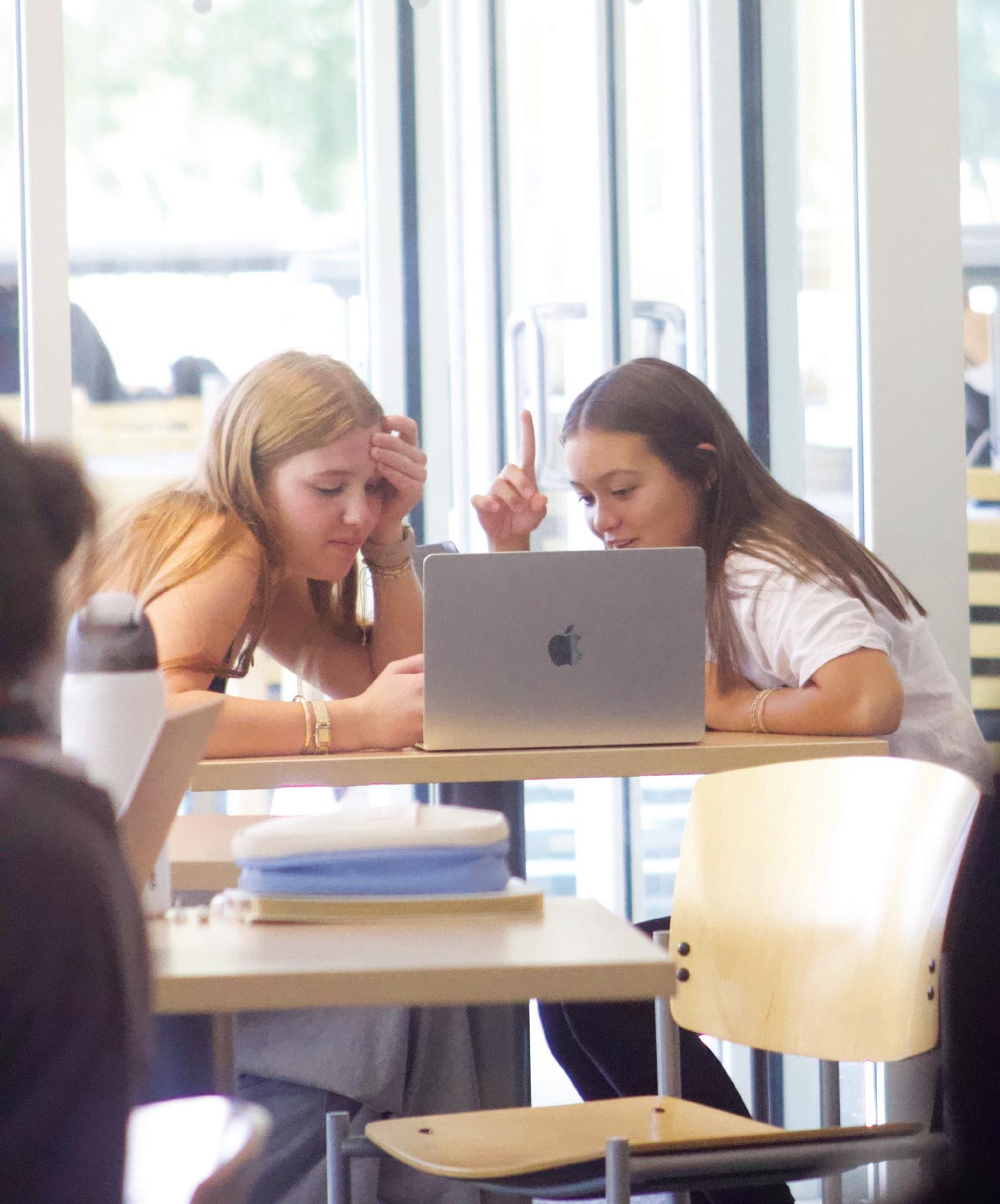

EDITORS Preston Comer & Gavin Avella EMAIL breezesports@gmail.com
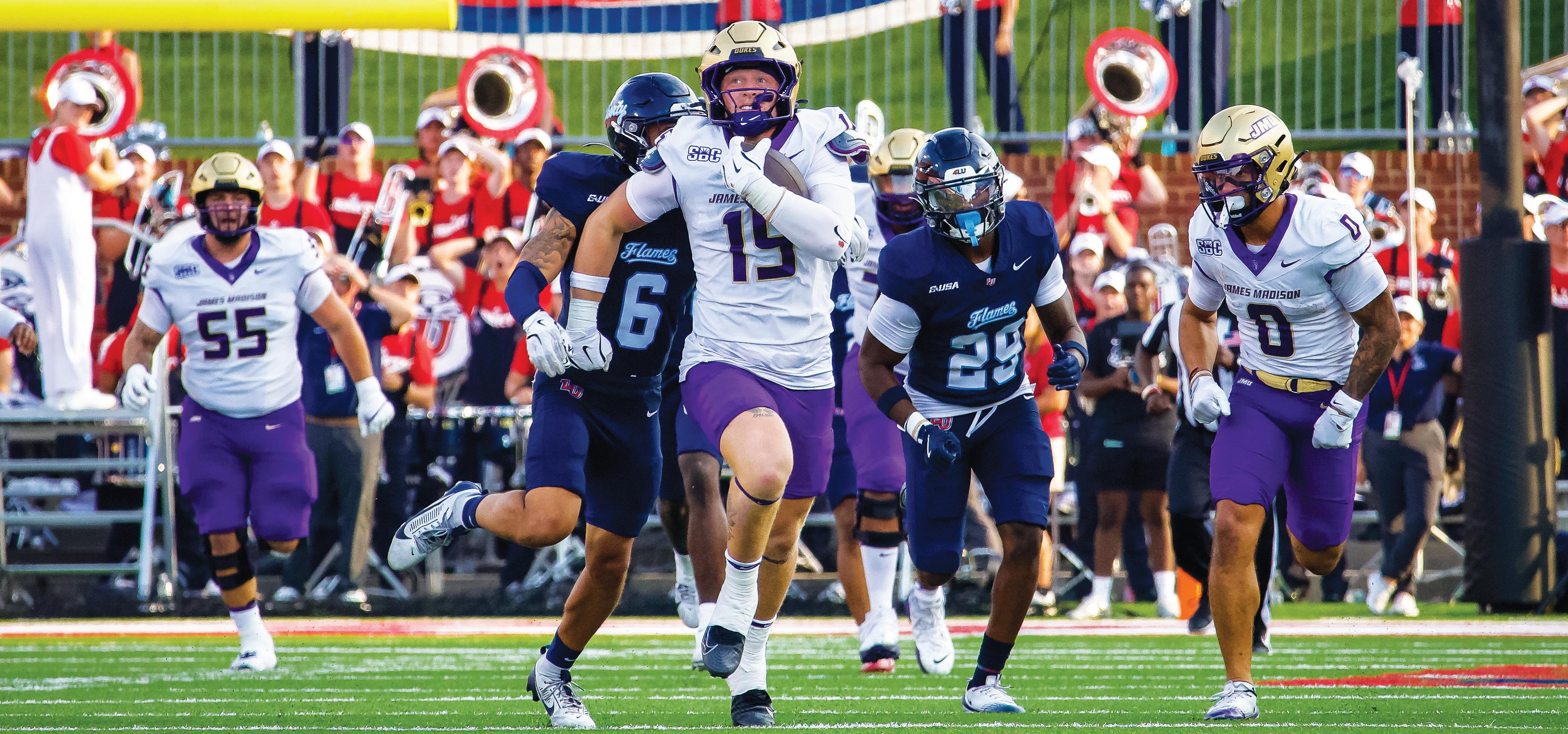
By PRESTON COMER
The Breeze
JMU football traveled to Louisville on Sept. 5 to take on its only Power Four opponent of the season. Despite losing 2814, the Dukes took the lead first, going up 7-0 during the first quarter. Redshirt sophomore tight end Lacota Dippre scored that 3-yard touchdown.
The catch was the first of Dippre’s college career. Last season, he was lining up on the other side of the ball.
Dippre spent two seasons at Charlotte, playing his first season as a tight end before moving to the defensive line last season.
“I just wasn’t getting time [as a tight end], I wasn’t getting anything in practice,” Dippre said.
Dippre approached Charlotte defensive coordinator Ryan Osborn about playing on defense. Dippre said Osborn loved him because of his effort and attitude.
In 2024, then-defensive lineman Dippre played in all 12 games and started in two. He recorded 25 tackles: three for a loss, one sack and one pass breakup.
Dippre entered the transfer portal Nov. 30 — the day the 49ers’ season ended. Less than a month later, Dippre committed to JMU. He made this decision after talking with the Dukes’ coaching staff while they prepared for the Boca Raton Bowl.
However, one condition almost kept Dippre from making the move to Harrisonburg: JMU’s coaching staff wanted him to switch back to tight end and play offense.
“[Special Teams Coordinator/Tight Ends Coach Drew] Canan called me and told me, ‘If you come down, it’s offense — it isn’t defense,’” Dippre said. “We definitely sat there in silence for a quick five seconds. I really had to think about it, because I really didn’t want to play offense.”
JMU’s coaching staff wanted Dippre to take an official visit, but he was still unsure, and his dad encouraged him not to if he didn’t want to play offense. It got to a point where Dippre was interested in offense, but it wasn’t his preference, he said.
“I thought, ‘let me go sit there, let me figure out the scheme, let me figure out how I fit, let me figure out if this is really going to help me play football beyond college,’” Dippre said. “Once I came here on my official visit, I had a few meetings; they went well, and I made the decision.”
Dippre’s first step in returning to offense was losing weight. Dippre said he “took a big gulp” on his official visit when he stepped on the scale and it read 275 pounds.
“I lost 20 pounds in a month,” Dippre said, “just because I wanted to show up and show them I’m fully committed to playing offense.”
In order to lose weight, Dippre said he cut out sugars and made sure not to “eat to be full, but eat to cure hunger.” Dippre also lifted a lot, something he and his father bonded over.
“One of the strongest parts of me and my father’s relationship is going to the gym,” Dippre said. “He was a power lifter, so he still goes to the gym every day.”
Dippre said he also put extra emphasis on using the treadmill and running hills. Dippre’s brother was on break from school at the time, so they also ran drills together.
Other than losing weight, Dippre said the biggest challenge was getting used to running routes again. Dippre said that often on defense, your feet get outside of your frame; but on offense, you have to stay underneath yourself.
Now, four games into his JMU career, Dippre said he “loves” playing in offensive coordinator Dean Kennedy’s scheme because it shows “you’re more of an athletic tight end rather than just a smaller offensive tackle.”
Although this is his first time playing for Kennedy, Dippre isn’t unfamiliar with a lot of JMU’s staff. Before committing to Charlotte, Dippre was originally committed as a tight end to Holy Cross, where JMU head coach Bob Chesney held the same position at the time. The Crusaders’ staff also included Kennedy, who was a quarterbacks coach.
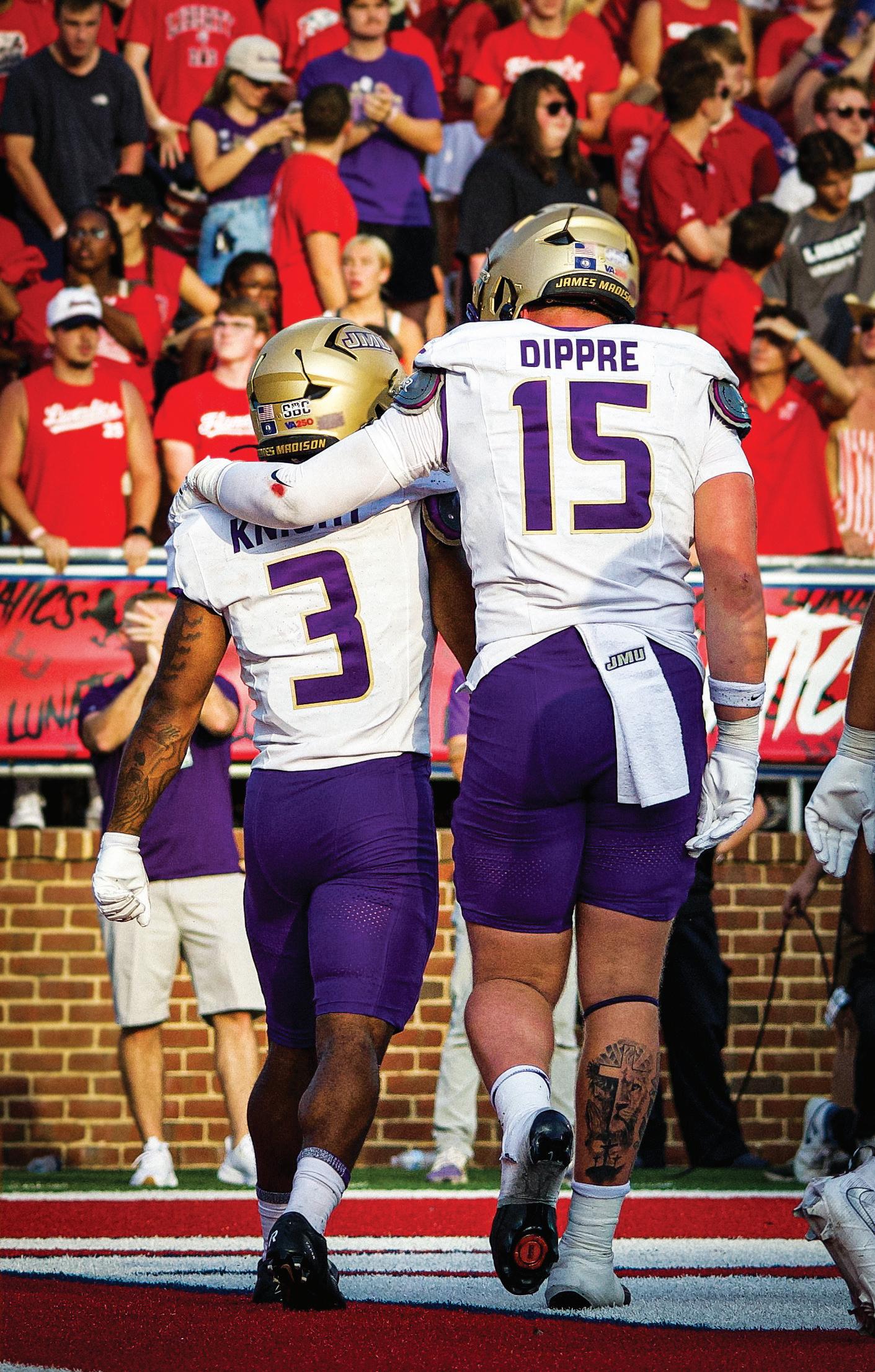
from DIPPRE, page 14
“I was committed to Holy Cross for about six months,” Dippre said. “[JMU’s coaches have] already seen me and recruited me for two years; they knew they’re going to get my toughness, my physicality.”
Kennedy praised that toughness and physicality — Dippre “plays with so much passion,” Kennedy said.
“You can tell that this game means so much to him,” Kennedy said. “When he catches the football, when he makes an amazing block, he just gets everybody [going]. He sparks this offense and he sparks this program in a way a lot of people don’t understand.”
Kennedy also said Dippre is willing to do anything on the field and praised his versatility.
“[He’s] willing to dig out a three technique, go block a nose tackle and then go run routes against a corner,” Kennedy said. “And he doesn’t ask for the football. He doesn’t care if he has 50 catches, two catches, one catch, he just loves this game … Everybody feels how he plays the game.”
Dippre credits his passion and drive to being a younger brother. He said he hung out with his older brother and his friends, and Dippre would get “beat up on” because he was smaller.
“We were playing tackle football and I was half of everyone’s size; I loved it, though,” Dippre said. “I love just getting back and being gritty.”
Dippre also said his grit comes from playing so many positions in high school, when he played almost every snap.
“I come from a small high school, I played everything, I was our punter,” Dippre said. “I played basically receiver, I played running back in the red zone.”
Dippre has five catches — two for touchdowns — just four games into the season. After almost not transferring to JMU, Dippre said he likes that the entire team is bought-in and close, comparing it to a family.
“Everyone having the same ideas and same goals just leads to us being more around each other and more involved,” Dippre said.
CONTACT Preston Comer at breezesports@gmail.com. For more football coverage, follow the sports desk on X and Instagram @TheBreezeSports.



By GAVIN AVELLA The Breeze
JMU football (3-1) continues its Sun Belt play Saturday against Georgia State (1-3), coming off a dominant 35-10 victory over Georgia Southern in its first conference game.
While Georgia State sits at 1-3 through the first quarter of the season, its record is somewhat deceiving considering some of the opponents it has faced.
“I don’t think it’s fair to talk a lot about the teams they played,” head coach Bob Chesney said. “One of them is one of the best in the Group of Five, and then the other two are just like juggernauts, so that’s who they’ve played, and they played them as tight as probably anybody did all year.”
The Panthers opened up their season with a 63-7 loss on the road against now-No. 4 Ole Miss before traveling back to Atlanta for their home opener against Memphis, who beat them 38-16.
Georgia State picked up its first win against Murray State 3721 in Week 3, before traveling on the road to now No. 16-ranked Vanderbilt, which bested them 70-21.
“They had their win against Murray State where they just really did whatever they wanted to do,” Chesney said. “So I think that’s hard to come off those two games, I think they have a lot of confidence in who they are, they just need a chance to really show in those types of games against those types of offenses and defenses that they play.”
When JMU and Georgia State squared off last year, the Dukes handled business early on, leading 28-7 at the half before adding 10 points and holding the Panthers to none during the second half.
While the Dukes beat Georgia State pretty handily last year, they weren’t completely flawless, giving up six penalties for 55 yards, something that offensive coordinator Dean Kennedy preached about cleaning up in the 2025 season as well, especially for the upcoming game.
“We were happy [about Saturday], I think there’s a lot of room for growth,” Kennedy said. “Some of the things that we
focused on was just penalties. And that’s kind of been backto-back weeks where we got to make sure we limit those penalties … so we got to make sure, right, we’re playing clean football in between the whistles, so that was one of the big stressing points.”
The 2024 Panthers’ defense wasn’t great statistically — ranking 117th out of 134 FBS defenses, giving up 33.8 points per game — and on paper, its 2025 defense isn’t much better, ranking dead last out of all eligible FBS teams, giving up 48 points per game. Once again, numbers can be deceiving.
“You look at their schedule, they played a really hard schedule so far, right?” Kennedy said. “They played two SEC teams, so I think it’s a team right, coming back where they’re going to be on their home turf, it’s been a team that plays really hard.”
The Dukes’ offense will look to take advantage of the defense giving up the most points in the nation, with or without their three running backs who missed last week, redshirt senior Ayo Adeyi, redshirt senior Jobi Malary and redshirt junior George Pettaway. Chesney said he’s “very optimistic” about the running back room’s health going forward, saying Malari could been seen running and sprinting around the field during the weekly Monday presser, and that Adeyi was out there practicing earlier and was kept out of last week’s contest as a precautionary thing after a small tweak at last Thursday’s practice.
Defensively, the Dukes will have their hands full with senior wide receiver Ted Hurst, who is the spearhead of Georgia State’s offense.
“This receiver’s kind of where it starts,” Chesney said. “Ted Hurst, as we know, is a really good football player, and he’s going to see the ball 10 to 20 times, maybe 15 to 20 times a game. They are targeting him 15 to 20 times every single game, so we have to certainly be prepared for that.”
While the Dukes are well aware of and prepared for the threat Hurst poses, they also acknowledged the potency of the rest of Georgia State's offense.
“It’s not just him, right? I think what makes him [Hurst] great is you can’t focus on him so much, because they got great backs,” defensive coordinator Colin Hitschler said. “They got good opposite receivers of him, they [rolled] a bunch of receivers, so you got to be ready for them all.”
The Panthers are mainly quarterbacked by redshirt senior TJ Finley, who has made stops at LSU, Auburn, Texas State and Western Kentucky throughout his career.
Finley has completed 54 of his 82 passing attempts for a 65% completion percentage, 527 yards, three touchdowns and three interceptions.
Redshirt junior Cameran Brown has also seen some time behind center at the quarterback position, completing 35 of his 51 passing attempts for a 68% completion percentage, 376 yards, five touchdowns and no interceptions.
While the Panthers' offense ranks 114th out of 136 DI FBS teams in points scored per game with 20, JMU is well aware of the threats they pose offensively after preparing and studying film.
“Yeah, I mean, the offense is good,” senior safety and captain Jacob Thomas said. “They have playmakers everywhere on that offense, so this is really a game where we have to be intentional, and be very good with what we’re doing and what we’re calling and how we’re playing certain things.”
With Saturday marking the second game of the Sun Belt slate, both teams are looking to come in and earn what would be a pivotal addition to the win column in the race for the Sun Belt Conference championship.
“Any game, you can’t look at the record, right?” Kennedy said. “The record really doesn’t mean anything because in college football, any given day someone can beat someone.”
CONTACT Gavin Avella at breezesports@gmail.com. For more football coverage, follow the sports desk on X and Instagram @TheBreezeSports.
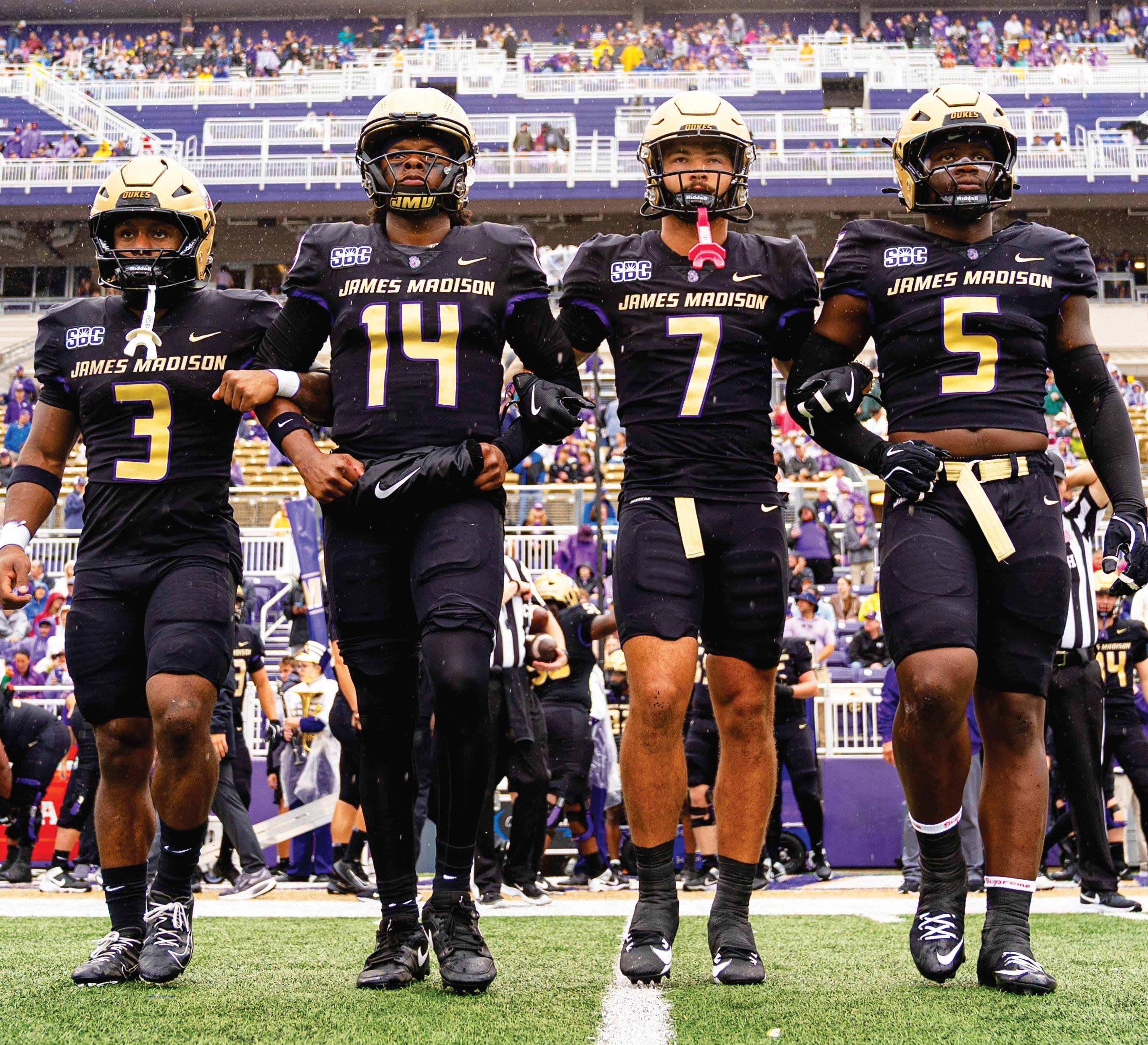

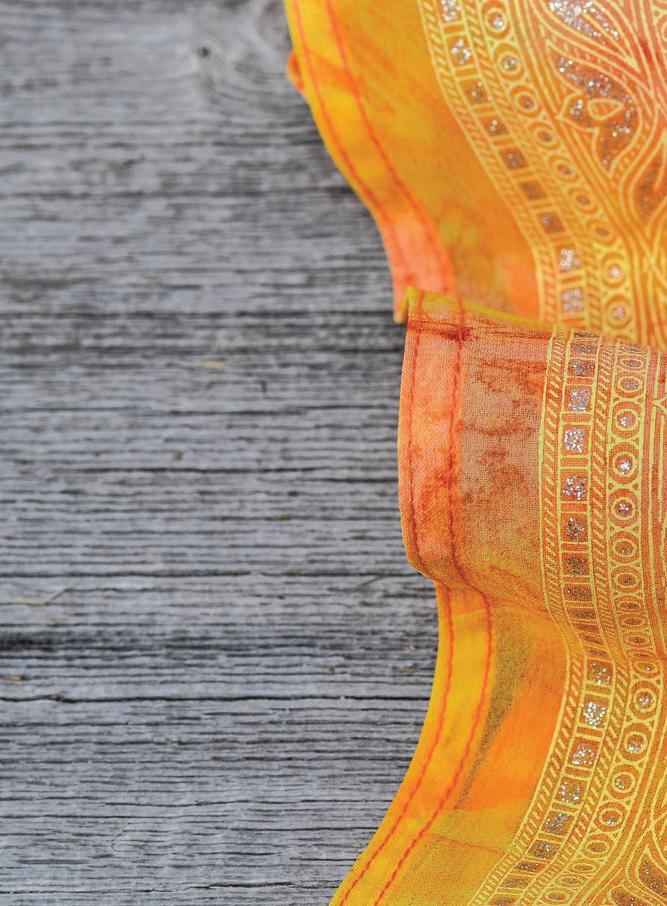





EDITOR EMAIL breezeopinion@gmail.com Caroline McKeown

Want to praise someone or get something off your chest? Darts & Pats is the place to do it. Submit your own at breezejmu.org.
A “stop-bickering” dart to the U.S. government.
From a student confident that humans should have enough empathy and sense to prevent this from happening.
BRADY HANLEY contributing columnist
Music changes almost as often as evening news tickers. Tastes shift — in politics, art or anything else mussed around inside the rusted colander of the American social machine.
M.C. Hammer had full-grown adults wandering through the streets of major cities in “pants” that would fall to the ankles of sumo wrestlers without battening enough ratchet straps down around their waists to secure a lumber load to the back of an 18-wheeler. Nowadays, you’d be hard pressed to find a teenager who could point Hammer out in a criminal lineup, let alone one willing to stomp around in his 80-inch waist pants.
The Richmond-native band Dayfiction is trying to carry on in the dead air left behind, and it seems to be working fine so far. I spoke to band members Mateo Melchor Dutto, Evan Solomon and Jackson Prior on the phone two weeks after they played the Black Iris in downtown Richmond — a month and some change since they toured between Boston and Philadelphia in a bloodcurdling 24-hour time frame.
put it into music and I think that put a big scar in it,” Solomon said. “You can’t be Danny Duncan and a band.”
The real difference between the independent bands of today and those of the past 50 or so years is that music has taken a backseat to the spectacle. Rockstars used to sell their music with persona and now the band has become the vessel to sell persona.
A “thanks-chunk” pat to all those fat a** bears in the National Parks.
From a fan with a similar BMI but never got any awards for it.
Of course, if you look hard enough you can find remnants of the old scene — and sometimes, if you stumble into the wrong bar on a night out, you might wind up sharing a cigarette with some poor bastard who slept through the death of rock ’n’ roll, but strike up a conversation with your drunk uncle at thanksgiving dinner or a local dispensary owner, and they’ll probably spend a couple hours trying to convince you that music used to be great. Things aren’t what they used to be — and how could they be? Music is cataloged, standardized and available to anybody willing to listen to a couple of toothpaste advertisements or pay $12 a month. Long gone are the days of van-wielding maniacs and wild travelling herds of groupies and headcases with nothing better to do than chase bands from one coast to the other.
Solomon spoke to me on the phone about how the group rolled into Philadelphia strung out on coffee and sore in the joints just in time to get heckled by some loony native in a purple bucket hat roaming the streets before the show — a random crime of passion. Around that same time, the band found out they were being played on Portuguese radio.
“That’s the difference,” Melchor Dutto said. “It used to be that you had to go to the show to see that — you had to go see them play to see the spectacle. Now, we’re saying the spectacle becomes the selling point — it’s all about making contact before they find you. Kids aren’t finding music anymore; music is finding them through videos and shit.”
In the era of information and sensationalism — where everything revolves around clicks and crowd noise, it was only a matter of time before people started to figure out that you could make more money posting cash-grab videos online than you could playing 50-man shows in dive-bar basements. It goes back to the three certainties in this world: death, taxes and people making a quick buck.
A “rest-in-peace” dart Nicole Kidman and Keith Urban.
From a Kidman stan who will be going to AMC this weekend to help my girl get that bag.
They’ve disappeared like the American Buffalo. Back then, it was worth it — you either listened to the real thing or were forced to pop a scratched vinyl or gummed-up cassette into a low-fidelity player. Nowadays, high-fidelity recordings of just about every song ever recorded are an arm’s reach away for anybody.
And for better or worse, he’s right. Thirty years ago, if you wanted to see a guy don a face full of black and white clown makeup and fart into a microphone after finishing a six pack of Heinekens onstage, you’d at least have to listen to him play his guitar. Today’s “bands” spend more time taking their clothes off and choreographing vapid camera stunts than they do playing their instruments.
“You see online that YouTubers, for example, go online and they post a bunch of ridiculous content and it gets a lot of views and in some cases that’s funny, but I think they took that business model and
That isn’t to say that nobody wants to play the lower caste shows — Dayfiction is more than happy to play for little screaming men at offbeat metal shows, Philadelphian comedians in purple bucket hats or anyone else with ears, for that matter — but once you get a taste for the majors, the minors aren’t as attractive. Dayfiction booked the National for September, and it hasn’t looked back since. If nothing else, that proves that in some sense a small chunk of the American dream lives on in the strange petri dish of modern times.
CONTACT Brady Hanley at hanleybc@ dukes.jmu.edu. For more editorials regarding the JMU and Harrisonburg communities, follow the opinion desk on X @TheBreezeJMU and on Instagram @BreezeJMU.
A “get-it-girl” pat to all the students that line up for Subway before it opens at the Grace Street Apartments.
From someone who doesn’t put that type of commitment into their studying.

If your TikTok feed is anything like mine, it seems that contemporary art is becoming increasingly controversial. Some, like Ian Kuzola of Three Penny Press, an online blog, see it as merely “pretentious nonsense,” or even “elitist.” Others, such as Faith Ruetas, author of blog Rethinking the Future, find it to be “profound, inspiring, and beautiful.” So, then, why is it so controversial? What role does it play in modern culture?
What, exactly, is contemporary art, in the first place? Contemporary, or “modern,” art is an elusive term that can be extremely hard to pin down. To define it, we can look at examples that are generally considered to be “modern.” This way, we can find a definition that is accurate in the context of the discourse that is happening now.
One of the most prominent examples of modern art that has come under recent scrutiny is “Comedian,” by Maurizio Cattelan. This piece features a banana ducttaped to a plain white wall. The reason that this might stir up controversy probably seems obvious. How can something so simple be considered art? What about all of the effort and thought that went into traditional art?
Cattelan’s piece is certainly not traditional, at least not in the way that word is commonly used. It’s a split from a long tradition in Western art — choosing not to strive for some form of realism, and instead opting for a style that is unique and almost disconnected. It isn’t trying to replicate the world, it’s trying to do something else entirely.
Some say that contemporary art functions as some kind of get-rich-quick scheme, or even as an easy way to launder money. Neither of these ideas are completely ridiculous; there are certainly critiques to be made about a culture that commodifies art in the way that ours does. At the end of the day, however, you can’t blame an individual artist for the way that an entire society and its culture operate in interpretation.
There is a reason that millions find this style of art to be moving, interesting and worthy of study. I find it hard to believe that all contemporary art professors and university programs are part of some giant pyramid scheme centered on laundering money for a couple of rich guys. More likely, there is some legitimacy and meaning behind this movement.
Contemporary art is real art. The reason it falls under such harsh criticism is simple: rather than being neutral toward, or even reinforcing, existing structures of power, it often levies heavy critiques at them. This is exemplified in Cattelan’s piece, which serves to generate commentary about what we deem as art in the first place. The very fact that this discussion exists in the first place proves the concept behind the piece. Cattelan intended for the piece to seem almost dumb. He knew it would sell for millions, shedding light on the irony of the commodification of art in modern culture.
Modern art is real art. It has something to say. Its utility is, at least in part, in the discussion that it creates. It’s meant to seem ironic because the irony catches attention. Policing how people can express their ideas is counter to the very point of art.
CONTACT Matt Gowel at goweljm@dukes. jmu.edu. For more editorials regarding the JMU and Harrisonburg communities, follow the opinion desk on X @TheBreezeJMU and on Instagram @BreezeJMU.
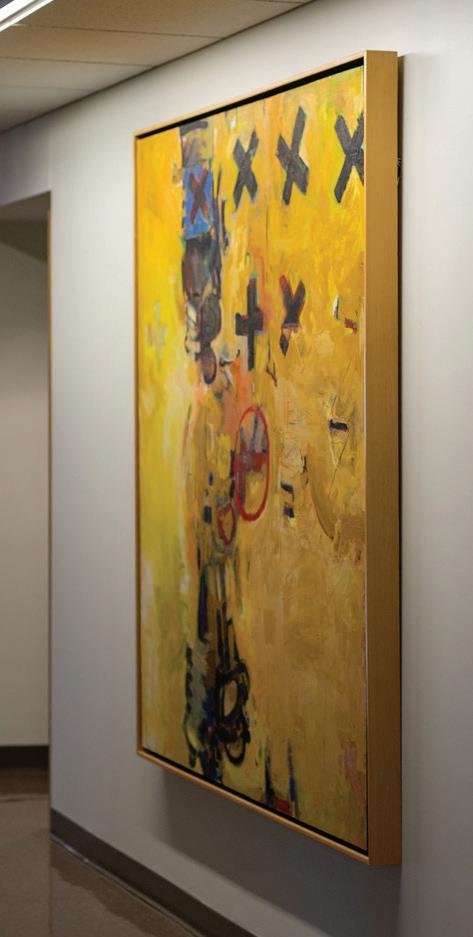
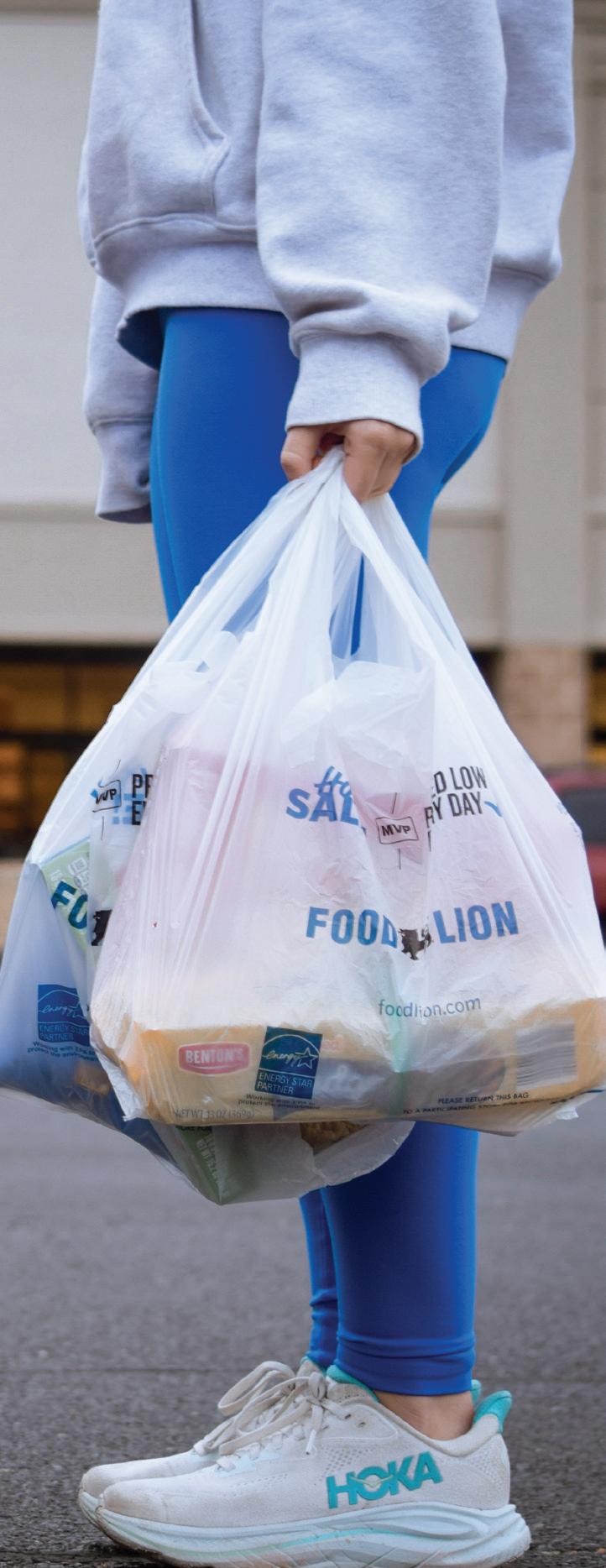
The college experience is often sold on a rosy promise of freedom. For JMU freshmen, this promise rings true — a perfectly self-contained bubble where classes, dorms and friends are all within arm’s reach.
However, this convenience is mostly a fleeting advantage. Soon after their transition off campus, students find that their prior independence is overshadowed by the frustrating loss of access to the community they once relied on.
As reported in 2023 by U.S. News, 68% of JMU students live off campus. Although the university does offer some competitive on-campus housing for upperclassmen — like dorms on Grace Street and the newer Potomac Hall — students usually decline it.
Traditional apartments or townhouses offer larger bedrooms, kitchens, bathrooms and more privacy; often for a much lower cost than smaller dorms.
Even with its perks, this trade-off forces them to forego the close-knit community that was the trademark of their first year.
The convenience of a short walk is withdrawn with dependence on the bus system, which students call unreliable and painfully slow. A 2024 HDPT study found that students who avoid the bus most often say that it “does not come often enough” or “takes too long.”
Sophomore Allison Hovey said the transition disrupted her routine.
“I used to walk everywhere,” Hovey said. “The only time I really took the ICS freshman year was when it was freezing cold. Now I have to take the bus everywhere, and missing out on walks to class makes me feel like I’m getting less of the campus vibe.”
What looks like a 10-minute drive can stretch into an hour when factoring in multiple bus lines, transfers at the ICS and long wait times. Missing one connection can derail an entire day’s schedule, especially when busy student schedules demand timely attendance.
A lack of bus service late at night makes it nearly impossible to attend late-night study sessions with friends or social events. Weekend transit is even thinner, with the complete absence of Sunday bus service forcing students to restrict their work schedules or depend on friends with cars.
“I think it’s kind of expected for most upperclassmen to have a car, so not much attention is paid to the accessibility of offcampus upperclassmen as toward freshmen,” Hovey said.
Yet even with a car, parking is no refuge. The on-campus annual passes for the 202526 school year cost $300 a year, but there is no assurance of a convenient spot. This notoriously translates to lengthy circling drives, gambling for available spaces or settling for distant commuter lots.
Students have to make a daily calculation about the worth of traveling to campus, creating a never-ending debate about the hassle of specific timing. Owning a car can generate as much stress as it solves.
Because of this, the change that’s celebrated as “growing up” can instead feel dwindling. Instead of acquiring life skills on campus, upperclassmen will spend essential time on the go and become further detached from the university that used to structure their day.
For transfers, these challenges tend to compound. Many choose to go straight into apartments off campus, and don’t receive the constant supportive programming and built-in dorm friendships that freshmen have. Most of the time, they have no established social circle and face physical and social barriers.
This contrast is especially striking when paralleled with the attentiveness toward freshman year. Freshmen are hooked by calendars overflowing with Weeks of Welcome, Playfair and other events designed to build belonging. But by junior year, the trek to attend even one evening event feels futile.
A 2023 JMU survey on student basic needs revealed that 33.4% of students reported housing challenges. Often, this exacerbates negative mental health, with 90% of respondents facing some sort of adversity. A multitude of research studies across higher education have repeatedly shown that commuter students have lower levels of involvement on campus. Accessibility shouldn’t be treated as a freshman perk. JMU must view it as an essential aspect of the full four-year experience.
A possible place to begin could be investing in transport beyond the bare minimum. Although HDPT already has some off-campus routes, there are many with substantial gaps. The Pink Line, for instance, only drops riders off at the Festival bus stop. From there, they must transfer at the ICS to reach other parts of campus.
Running later buses, especially during weekends, would give students more flexibility to participate in campus life without having to invest in the steep expense of a vehicle.
Parking reform is also a big step. As it stands, the annual pass is little more than a permit to frustration. Other schools have eased this strain with tiered pricing by proximity and partnering with rideshare or carpool programs to cut back on demand. The same steps can be taken by JMU to render parking less of a gamble and more of a guarantee.
If JMU is serious about preparing students for adulthood, it must work harder to ensure that autonomy doesn’t come at the expense of involvement.
CONTACT Elana Leichty at leichtek@dukes. jmu.edu. For more editorials regarding the JMU and Harrisonburg communities, follow the opinion desk on X @TheBreezeJMU and on Instagram @BreezeJMU.




EDITOR-IN-CHIEF Eleanor Shaw breezeeditor@gmail.com
NEWS EDITORS Emma Notarnicola & Landon Shackelford breezenews@gmail.com
COPY EDITORS Kayla Katounas & Joelle McKenzie breezecopy@gmail.com
PRINT MANAGING EDITOR Hannah Kennedy breezepress@gmail.com
CULTURE EDITORS Isabel Lewis & Charlie Bodenstein thebreezeculture@gmail.com
PHOTO EDITORS Kailey Garner & Annabel Dewey breezephotography@gmail.com
ONLINE MANAGING EDITOR Sixuan Wu thebreezeweb@gmail.com
SPORTS EDITORS Preston Comer & Gavin Avella breezesports@gmail.com
AUDIENCE EDITORS Ella Warren & Madeline Buynak thebreezesocials@gmail.com
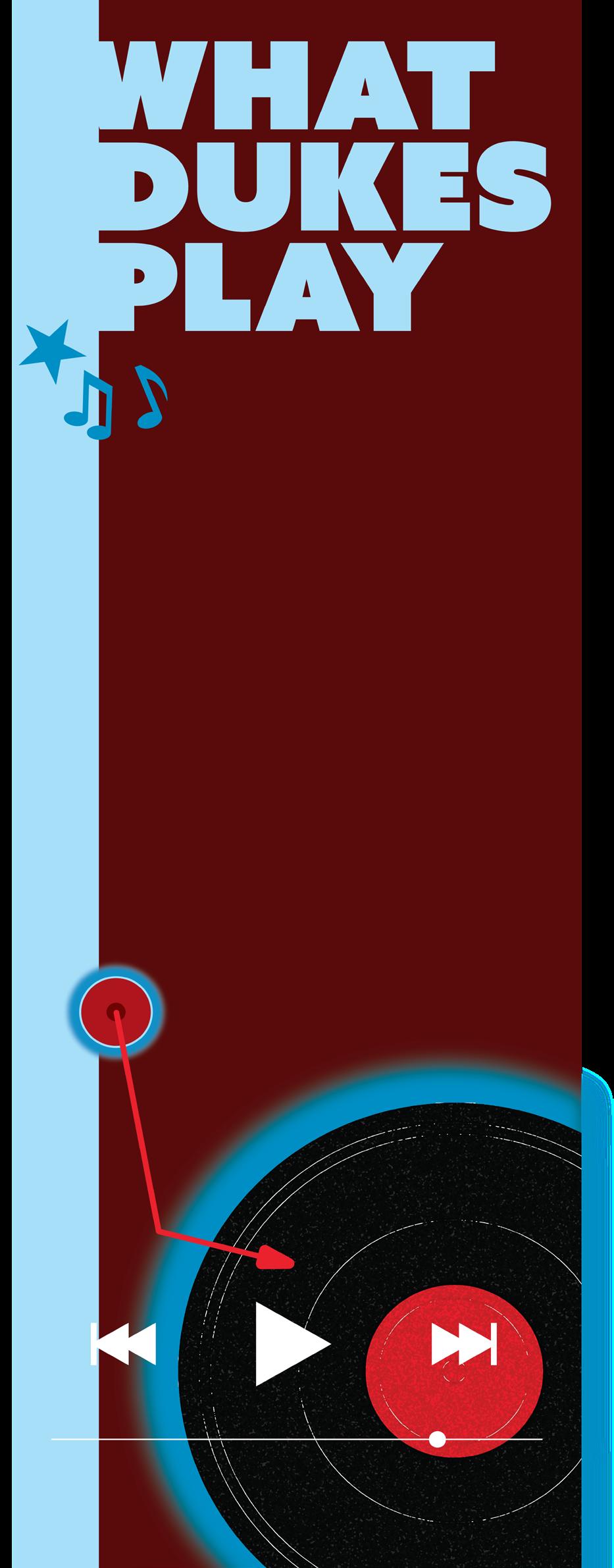
“Like a Hurricane” by Neil Young
“These Days” by Wallows

“Champagne Supernova” by Oasis
“Surround Sound” by JID

“Twilight Zone” by Ariana Grande
“So Be It” by Clipse

“Little Green Apples” by Roger Miller
your answers on our weekly Instagram poll @BreezeJMU!
S. Main St. Harrisonburg, VA 22801 PHONE: (540) 568-6127 FAX: (540) 568-7889
OPINION EDITOR Caroline McKeown breezeopinion@gmail.com
ART DIRECTOR Julia Tanner thebreezeartdirector@gmail.com
TV NEWS DIRECTOR Alexa Bonilla jmubreezetv@gmail.com

(9/24/25): The author’s name of the column “Opinion | JMU needs to recycle better” was mispelled. It was written by Ashton Collins.
The photo illustration in the same column was misattributed. The photo was taken by Sierra Stockman. This column has been updated online to reflect the above corrections.

Los Angeles Times Daily Crossword Puzzle
ACROSS 1 Hushed “Hey, over here!” 5 “What __ I supposed to do?”
8 The Beehive State 12 Flour for chapati and roti 13 Director Kazan
Love, in Italian
*“Neato!”
Tangy bud in a piccata recipe
Multiplex array
“Sorta”
Spoiled 23 “How To Be an Antiracist” author Ibram X. __ 24 Indigenous name of Mount Rainier 26 Those people’s 28 Bar purchases 31 Italian model on the cover of many romance novels
Spiritual guide
Move suddenly
Comedian Wong
*Mensch
Opposing vote
Fireplace stack
Hankering
Utility bill info 47 Pendant with a photo 49 “Hamilton” actress Renée __ Goldsberry 51 Zedonk or zorse 53 Loses, as fur
“__ willikers!” 58 Spanish sun 59 “Gnarly!”
61 One-named “Skyfall” singer
63 Marketing term for nutrient-rich fare, or what the answers to the starred clues are 65 Yellowstone grazer 66 Sailing 67 Like water surrounding a startled cuttlefish, maybe 68 Slow-cooker dish 69 Burnable datastorage medium, for short 70 Golf pegs
Edited by Patti Varol FOR RELEASE SEPTEMBER 29, 2025
By Taylor Johnson
Campaign support gps.
Soup base
One of 500+ in the Mall of America
Gelato brand in clear jars with brown screw-top lids
Hot dog, casually
“Sadly ... ”
Sloth, for one
Actress Thurman
*Head honcho
Vicinity
Group of buffalo
Nepal’s continent
“Gesundheit” elicitor
Sleeper who takes all the blankets
“I dunno” gesture
Plodded
Coffee, slangily
“Young Frankenstein” assistant
“What a __!”
Eyelid affliction
Potatoes, in Indian cuisine




33 *Influential person 35 Instagram video
Closing section of a song
Productive oil well 43 Pie in the __
Deems appropriate
“Breakfast at Tiffany’s” actor Buddy
Madison Marketplace is open for business, and all text-only listings are FREE ! Post job listings, announcements, rentals and more using our online placement tool. Ads run two weeks online and in two print editions.
4 bedroom/4.5 Bath Location: Copper Beech, 1.7 miles to campus $830/month, first month rent FREE, co-ed (JMU students)
Newly renovated and fully furnished! Includes: Deck, in-house laundry, parking, and more. Popular community! Interested or know someone who is? Please contact cb.studenthousing@gmail.com and reference The Breeze Ad.
Two Bedrooms, partially furnished, shared bathroom and kitchen private sink and vanity in each bedroom. May be shared by two people. Both required to sign lease. Electric, gas and water included. TV and internet available. 10 miles North of Harrisonburg. Lease and security deposit required $1,300. Call 540746-7445

Are you ready to be the driving force behind cutting-edge public safety technology? Join the Harrisonburg-Rockingham Emergency Communications Center’s team as a Software Portfolio Specialist and help shape the future of emergency communications in a high-impact, mission-driven environment. Find out more/apply online: https://www.harrisonburgva. gov/employment.EOE.

Career Opportunity - Police Recruit
The City of Harrisonburg is currently accepting applications for noncertified individuals interested in joining the Harrisonburg Police Department, which offers a rewarding career plus an excellent benefits package, including enhanced hazardous duty through the Virginia Retirement System (VRS). Find out more/apply online: https://www.harrisonburgva.gov/ employment. EOE.

Transportation Services Airport transfers, wine tours, special events Motorcoach trip to Liberty football game Sept 20 Contact Adventures-N-Travel.com Call or text 540-810-1196 mikepackett@aol.com

2015 Hyundai Accent Sport 4DR Hatchback black, 82,350 miles $7950
2015 Hyundai Accent Sport 4DR Hatchback black, 82,350 miles beautiful maintained per schedule, garaged, steam cleaned engine, waxed often. Market price sells priced $9759 with 120K miles is average. KBB Valued $8600. Priced $7950 well below average with less miles beats all offers. Reliable college transportation see Autotrader.com

Missing Giraffe! Please Help!
This large concrete giraffe yard ornament was stolen from an elderly resident Aug. 22 on Port Hills Drive. It is a very sentimental gift and is 40 inches high. Please return to 1588 Port Hills Drive No questions asked. If you have seen it please call Andy at 757-592-2888

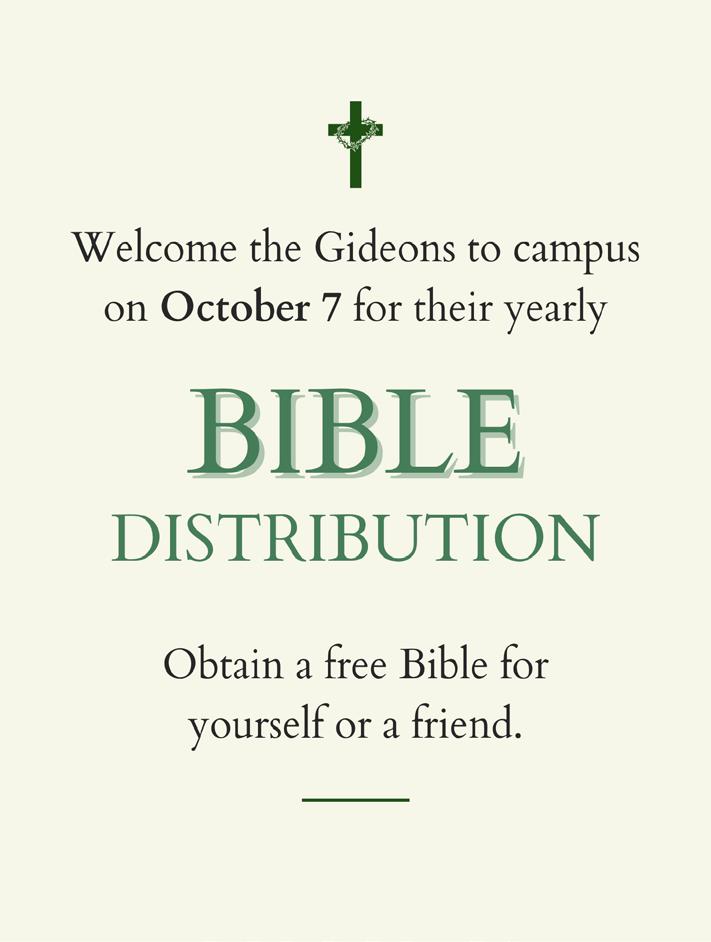
Game room
Large folding ping pong table with accessories. Foosball table with extras. Both in good condition. Must pick up, cash only $75 each. 540-578-2362



